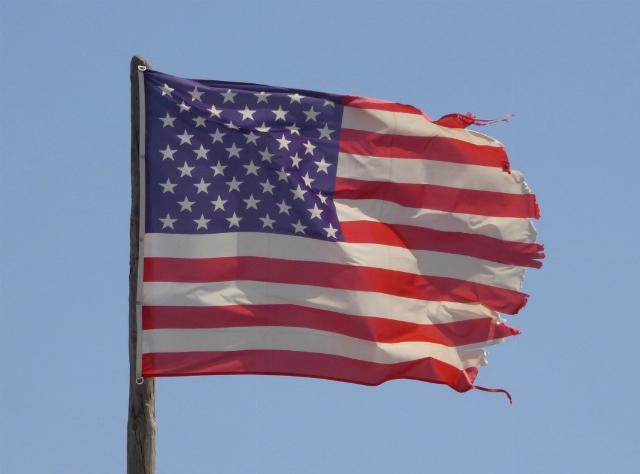What is an American?
Two characters in the movie The Equalizer are police officers who are nothing more than extortionists with a badge. The same type of characters appear in the movie Payback. It got me thinking: At what point can we stop referring to people as members of an organization whose principles they have abandoned?
If a policeman no longer enforces the law, but actively breaks it, can we still call him a law enforcement officer? If an arsonist works as a fireman, is he still a fireman? If a nurse murders her patients, is she still a nurse? If a person actively works against his country, can we still legitimately call him a citizen?
What does it mean to be a “good American”? Beyond mere legal citizenship, it entails embracing core principles that define the nation’s identity, governance, and societal ethos. It’s not just blind allegiance, but a commitment to the ideals that foster liberty, justice, and prosperity. America is a pluralistic society, and these aren’t mandatory dogmas, but foundational convictions that have historically, and perhaps ostensibly, united Americans to pursue a “more perfect union.”
A good American believes in the Constitution as the bedrock of government, a document designed to limit power and protect individual sovereignty. This means affirming its core: federalism (balancing state and national authority), separation of powers, and the checks and balances preventing tyranny. One must believe that the preamble — “We the people” — establishes a government derived from popular consent. It includes supporting amendments and judicial interpretation and rejecting unconstitutional overreach, whether from government or mobs.
The Bill of Rights (the first ten amendments) enshrines fundamental freedoms. A good American must believe that these are inalienable rights, not privileges granted by the state (sorry, Tim Kaine). This includes:
Belief here means advocating for these rights universally, not selectively. It requires vigilance against erosion — whether through surveillance, censorship, or overregulation — balancing them with communal responsibilities.
A good American believes we are a nation of laws, where those laws apply equally to all, from presidents to citizens. This means respecting statutes, court rulings, and constitutional text rather than personal whims or mob justice. It rejects corruption, nepotism, or selective enforcement.
This belief fosters stability. Laws must be clear, predictable, and fairly applied. A good American supports and trusts law enforcement while demanding accountability. He understands that although justice may be imperfect, it evolves through legal channels, not vigilantism or revolution, unless as a last resort (as our Founders did against Britain).
A good American believes that our economic system, rooted in free-market capitalism, emphasizes private property, entrepreneurship, and voluntary exchange. He believes that this system drives innovation, wealth creation, and social mobility while rewarding merit and risk-taking. He believes that individuals, not central planners, best allocate resources. He supports competition and opposes monopolies. He understands that ethical capitalism requires fair play and a recognition that markets serve people, not vice versa.
A good American appreciates that our Founders drew from Jewish and Christian traditions such as the inherent dignity of individuals, moral absolutes, justice, mercy, and stewardship. He appreciates this heritage as part of our moral foundation.
Yet this belief must align with the First Amendment’s caveat of no established religion, ensuring freedom for all faiths or none. It’s not about mandating Christianity, but embracing universal principles such as the sanctity of life, liberty, and the pursuit of happiness that transcend religion. It means respecting pluralism while drawing ethical inspiration from these roots.
A good American believes that these interconnected elements form a constitutional republic under law, protecting liberties through free market capitalism, informed by moral principles that emphasize human dignity. Leftists and conservatives may invoke them differently while still requiring active participation: voting, civic engagement, and self-improvement. As Lincoln said, America is an idea, tested by whether we live up to it. True goodness lies in striving for that ideal, fostering unity amid diversity, without coercion.
So what can we say about Obama, who openly and repeatedly violated the Constitution? Is he a “good American”?
Is President Biden, who censored free speech and emboldened our enemies, a “good American”?
How about people who burned churches? Are they “good Americans”?
If a judge violates a person’s Second Amendment rights, is he still a “good American”?
Would a “good American” deny due process to the J6 protesters?
How does embracing socialism, as Mamdani and Sanders do, affect their status as “good Americans”?
At what point do such betrayals of America’s ideals render one no longer a “good American”? Although legal citizenship may persist, the spirit of American identity hinges on striving for a “more perfect union.” Legal citizenship may endure, but those who actively work against these ideals risk losing the essence of what it means to be truly American.

Image: Pashi via Pixabay, Pixabay License.